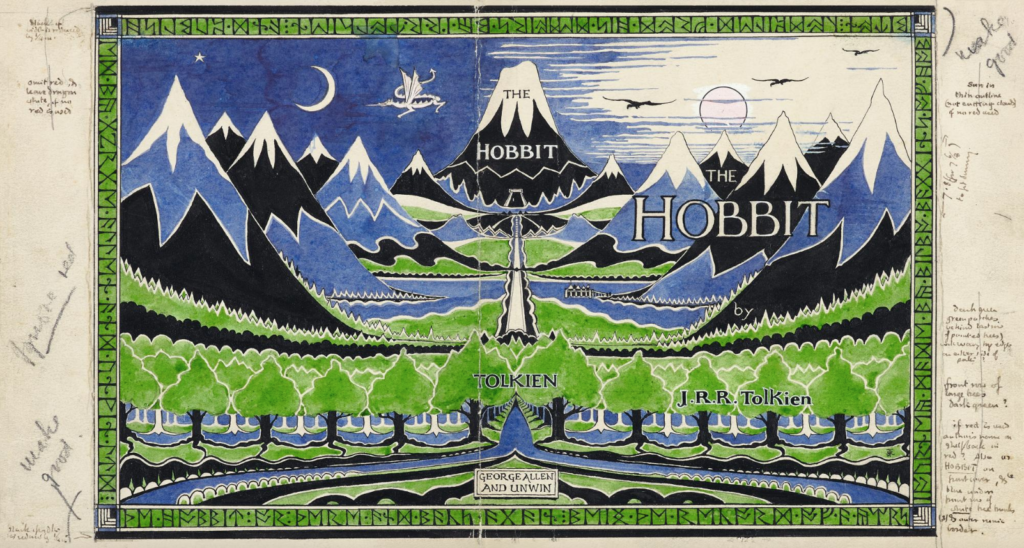
The Hobbit is a highly captivating book, for it’s almost impossible to resist turning to the next page. The first sentence of the book introduced a creature who has no beard, who is inclined to fat in the belly, and who is about half of our height called a hobbit, and this hobbit is called Bilbo Baggins. J.R.R Tolkien has a captivating voice, and the book has two climaxes, unlike most other books that I’ve read. The whole entire book is about a timid hero – Bilbo Baggins is also descended from the Tooks, who were adventurous hobbits – whose Baggins side is content to sit at home by the fire with a cup of tea and a smoldering pipe, who is convinced by Gandalf the wizard and Thorin Oakenshield and his 12 dwarves to go on a dangerous adventure to recover their treasure that was stolen by a vicious and murderous dragon named Smaug. The first climax was when Smaug was shot in the stomach or heart through his only opening by one of the Lake-men generals called Bard. The second climax was when Thorin shows his true self; that is, selfishness and obsessiveness in his love of treasure, and his being unwilling to give up anything for it. This then started war with the elves, the Lake-men, the Goblins, and wolves. From that we can tell that Thorin has a bad side to him, and that again proves that The Hobbit is a fascinating book because J.R.R Tolkien scores each character like a composer of the heart. Gandalf is of utmost importance. He was the one to volunteer Bilbo into the whole adventure, and he conditioned the company, making them stronger and more flexible throughout the journey. He guided them, saved them, and taught them in this way. To give an example, in Chapter 2, page 36: “Not until then did they notice that Gandalf was missing. So far he had come all the way with them, never saying if he was in the adventure or merely keeping them company for a while”. In this way, Gandalf was conditioning them, making them rely on themselves, sparking their independence, so they could work together through gruesome times. Later, he left the dwarves to go on to Mirkwood by themselves, bidding them adieu at the entrance to the gloomy wood, warning them to stay on the track, which they did not. Even though absent, he keeps track of them: he’s busy and has many things to attend to. In this way he was strengthening the company, while still keeping a look-out for them.

